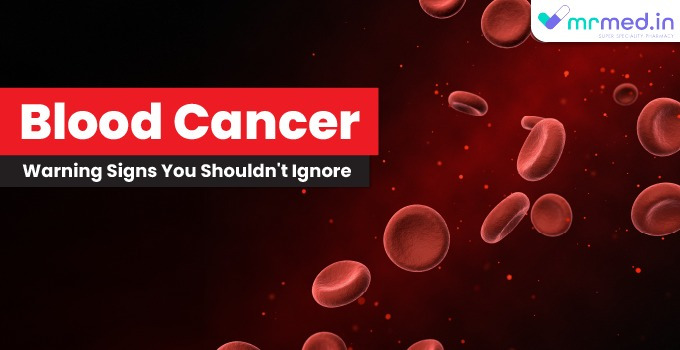Leukaemia, commonly referred to as blood cancer, is a kind of cancer that affects the bone marrow and blood. It is a critical condition that has to be treated right away by a doctor. Blood cancer, like other types of cancer, can be challenging to identify, particularly in its early stages. But there are several red flags that you shouldn't overlook.
In this post, we'll go over a few blood cancer symptoms and explain why it's crucial to be checked out if you exhibit any of these.
Weakness and Exhaustion
Weakness and weariness are two of blood cancer's most prevalent symptoms. Anaemia, which might result from this, can be brought on by a drop in the body's healthy blood cell count. The inability of the body's red blood cells to deliver oxygen to the tissues is known as anaemia.
Breath Control Issues
Breathlessness is another typical sign of blood malignancy. Anaemia may also be to blame for this since the body is not receiving enough oxygen. The accumulation of fluid in the lungs, a typical sign of several blood cancers, can potentially be the reason.
Continual Infections
Blood cancer patients are more prone to infections. This is due to the possibility that blood cancer will reduce immunological function, making it more difficult for the body to fight against infections. Consult your doctor if you frequently get infections, especially ones that take a long time to recover.
Unaccounted-for Weight Loss
Unexpected weight loss may indicate a number of illnesses, including blood cancer. You should consult your doctor if you notice that you are losing weight unintentionally or if your appetite has diminished.
Enlarged lymph nodes
Lymph nodes may swell as a result of blood malignancy. The immune system contains tiny, bean-shaped structures called lymph nodes. Although they can be found all over the body, they are most frequently found in the groyne, armpits, and neck. Speak with your doctor if you observe any swelling in these places.
Bleeding and Bruising
Additionally, blood cancer can result in unusual bleeding and bruising. This is due to the fact that blood cancer can impair the body's capacity to produce blood clots. Consult your doctor if you experience any unusual bleeding or bruising.
Conclusion
Blood cancer is a dangerous disease that can be challenging to identify. But there are several red flags that you shouldn't overlook. Consult your doctor if you have any of these symptoms. Your chances of a favourable outcome can be increased by early diagnosis and treatment. Keep in mind that it is always preferable to be safe than sorry.




